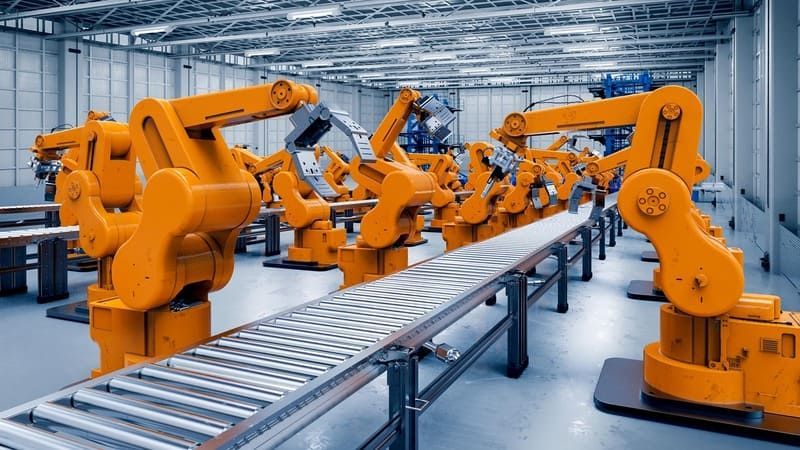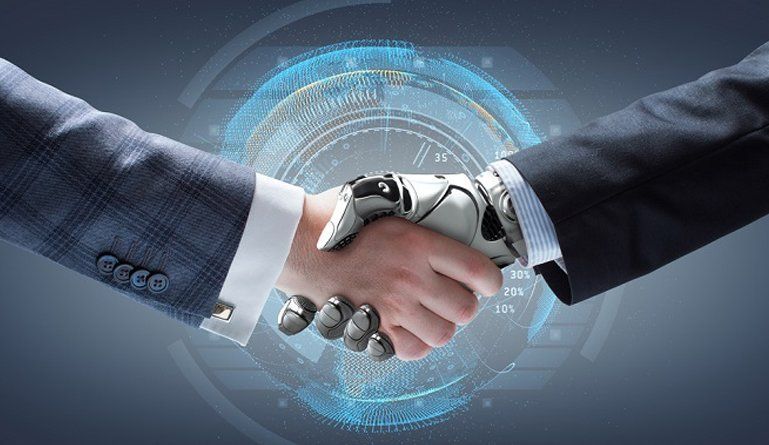With 2 shocks from Decree 100 and Covid-19, what do experts share about cost reduction and "symbiosis to survive" in the F&B industry?
Responding to Young Intellectuals, Dr. Ngo Cong Truong - an expert in optimizing business structure and operating structure, Chairman of John & Partners shared: "If any business survives this time well, it is likely to lead the market, even embrace the whole market." .

Photo: The Guardian
In the context of being temporarily closed to welcome guests, every day off is a day of fixed costs that weigh heavily on the shoulders of businesses. How to solve this problem?
Today's F&B businesses definitely have to reduce costs. Revenue is not impossible to increase, but very difficult. Even to maintain at 70% is already fine.
In terms of fixed costs, the biggest cost is space. How to reduce the cost of this space? Firstly, it is necessary to review your restaurant chain, any location that has no potential, is not optimal in the future, should stop the contract completely and close it.
Second, this is how I see many businesses do it. Mr. Mai Truong Giang (owner of 2 brands Otoke Chicken and Chewy Junior Vietnam) has created a group called "kind owner", to contact the owner of the premises. In fact, both sides are very frank. If the landlord is affectionate and interested in the business, then by February, they have actively contacted.
If the business does not rent or return the premises, the business only loses the deposit, but the landlord loses even more, which means no one will rent during the epidemic. In my opinion, this relationship is a Lose-Win relationship, which means that each person has to lose a bit, then win.
A lot of hosts are willing to take 15-20% off, some even offer up to 50% off. I've seen many homeowners drop up to 3 months in a row 50%. In this stage "of less and more", supporting each other in difficulties is better than both sides losing. Lose-Lose thinking is very dangerous these days.
If it can't be reduced anymore, then the model must be considered, from offline to online. The ban only prohibits gatherings, but everyone's need to eat and drink is still there.
In the F&B industry, there is a concept of "cloud-kitchen", that is, "kitchens in the clouds" for us to cook together for those who need delicious food. If you can't leave the house, order food to eat at home. If the model can be converted, the fixed costs will be reduced because the revenue we bring in is higher.
What about variable costs such as materials and labor?
First, like I said, you need to see if your model can convert. If the conversion is online, it can be controlled much better because there is a clear order from the customer.
Second, if the premises can be negotiated with the "kind landlord", the input materials can also be exchanged with the "kind supplier". When things are stable, when I go to consulting, I often advise bosses in general, as well as bosses in the F&B industry in particular, to be kind to suppliers. The customer is the upper hand, yes, but the supplier is also a very important factor for the survival of the business.
Many F&B businesses, in the past, still consider themselves customers of suppliers, so they still consider themselves to be gods. It's okay when it's stable, but when there is a fluctuation, we will have to go back to negotiate delivery conditions, minimum order quantity, payment conditions, payment methods... Supplier will be the one to stand by and accompany with businesses to overcome. While working together, if the two sides are satisfied, the supplier will be ready to accompany the business when there are difficulties.
The suppliers themselves also face many difficulties. In particular, each F&B business has many related suppliers, so it is necessary to sit down and find a satisfactory solution for all parties.
Finally, labor costs are among the most complex. Employees are the ones who bring results to the company, if it is difficult to cut back, it is also very difficult. Later, the same team is needed to return, who are skilled, experienced, and trained.
In this situation, for employees, the first mindset to have is the mindset of optimizing human resources.
First, key employees must be retained. Especially the kitchen staff - the soul of the F&B industry - must increase or decrease depending on the volume of orders from customers. Negotiate with them whether to take leave or change shifts. This is their time to rest, because during peak times they have almost no rest.
Second, replaceable and unaffected employees who can readjust, especially seasonal workers, may have to negotiate a layoff.
Can an enterprise's relationship with suppliers, landlords and other partners at this time be called a symbiotic relationship?
Yes. Many homeowners, business owners and suppliers do not understand that relationship, leading to poor cooperation during this period. If the landlord makes it too difficult, pushing the business to the end, they will go bankrupt and have to return the house or the ground, the landlord will no longer have the rent, because at this time it is very difficult to find a new tenant. Instead, they should support each other, get through difficult times together, then it will definitely be okay later.
The same is true for other industries. Even other large enterprises such as Samsung, Bluescope, PepsiCo... all place great importance on good management and good relationships with suppliers. Relationships between the parties: suppliers, landlords, partners and businesses, by extension, sectors in the economy, must collaborate to develop together.
How to optimize the conversion to delivery and online business at this time?
During this time, being able to maintain revenue is already too much fun. When transitioning online, there are a few concepts F&B businesses need to know. The first, as I just said "cloud-kitchen", the shared cooking will save a lot of money.
The second is about delivery, which can be combined with existing platforms such as Grab, GoViet or Now, which will be very convenient. During the epidemic season, when people do not leave the house, the delivery is the solution.
Third, special attention should be paid to marketing and customer experience. Need to focus on whether or not your business can improve. For example, instead of selling products, sell combos, reducing costs for customers.
Besides, some businesses are too focused on cutting costs, but sometimes investing more in advertising costs at this time, so that people know themselves better, it is convenient to switch stages. on.
This is also an opportunity for businesses to take advantage of customer data and apply 4.0 technology. If we have customer data, we can know what this customer likes, what area they live in, to properly serve their needs.
The F&B industry now also has a subscription-based business model that sells products in a 7-day breakfast combo package, for example. The advantage of this model is to solve cash flow problems for F&B businesses, receive money first and deliver later. I have also advised a number of businesses that follow this model. It sounds new, but it's great to do. Translated or not translated, no one can fast. This model will be especially relevant to the trend of healthy eating. Worth a try for businesses during these difficult times.
At this time, there are a number of businesses "catching the trend" to sell some products such as burgers modeled after the SARS-CoV-2 virus shape, rescue dragon fruit bread... and these businesses are said to be still living well in the middle of epidemic. How do you rate this solution?
These solutions in my opinion are good, smart and quite responsive. If many businesses can do this, it is generally okay, this needs to be promoted. This shows: in danger there is always a chance, the most important thing still lies with the business owner. In this extremely difficult time, any revenue is good for the business, so you have to be creative to live on.
The above solutions mean that businesses have well applied the Value Innovation model. ie very creative but at low cost, and bring good value to business, community and society.
How do you see the opportunities for the F&B industry after the pandemic?
Enterprises that pass this phase, if they live well, are likely to lead the market, and even embrace the whole market. "The winner takes all" – the people who will end up eating all the pie the market has.
In addition, after the epidemic, F&B businesses in particular and businesses in general have completed basic digital transformation, brought offline to online, optimized business operating structure, reduced costs...
Traditional models will be gradually replaced by new ones, such as online, delivery, cloud-kitchen, rental market, pre-prepared food delivery, recipe sale...
If after this social isolation period, Vietnam can control the epidemic, how do you assess the prospects of the F&B industry in 2020?
In my opinion, after this phase, the market will grow back in a U-shape, instead of a V-shaped like many people predicted before. That is, the market is going down, then it will go sideways and then finally rise. It is likely that 2020 will be knocked out, and if we are lucky, we can all recover in the fourth quarter.
However, the need to eat is a basic human need, so the F&B industry can still live through different forms. So businesses that are flexible, fast-changing, fast, and adaptable will survive and grow.
What if it can't be controlled in the next 2 weeks?
If so, the overall situation will deteriorate very quickly and may get out of control. Not only F&B but also other industries, but on a larger scale, the whole economy. There have been many countries that did not control and let the situation spread quickly like Europe and the US. However, I still believe that Vietnam is doing very well, and everyone is positive and working together to overcome it. Vietnam is still in the top of countries with good control in the current global pandemic.
What is online conversion?
Online transformation is a form of moving the entire process from management to operation in all aspects of the business (sales, marketing, customer care, operations) to the "cloud". From there, instead of sitting at a desk, working centrally, managing data on paper, businesses can access and process it from anywhere, at any time.
In the current context, businesses are forced to switch online to survive.
How to convert online?
The BizFly ecosystem operated by VCCORP is currently providing solutions to help any business, especially the vulnerable group of businesses that are being hardest hit by the impact of Covid 19 (Retail, restaurant, etc.) ...) can convert online immediately without spending too much time or training personnel.
Giới thiệu John&Partners
Chính sách chung
Việt Nam
Email: public@john-partners.com
Điện thoại: (84) 77 5955 007
Hồ Chí Minh City
- 3C Phổ Quang, Phường 02, Quận Tân Bình,
TP. Hồ Chí Minh
- Điện thoại: (84) 916 350 421
Hà Nội
Hoa Kỳ
- The Cannon @ the Energy Corridor1334 Brittmoore RoadHouston, TX 77043.
- Điện thoại: +1 832 202 8968
- Email: trangnguyen@john-partners.com
All Rights Reserved | Công ty Cổ phần Tư vấn và Giáo dục John&Partners









